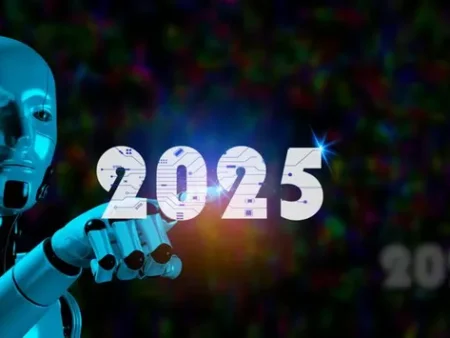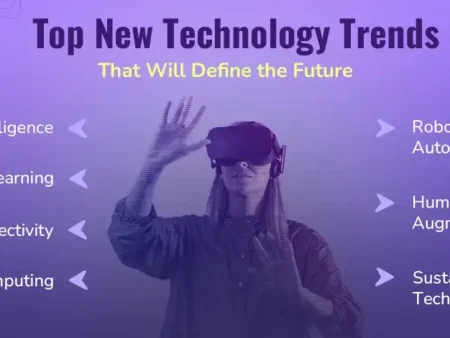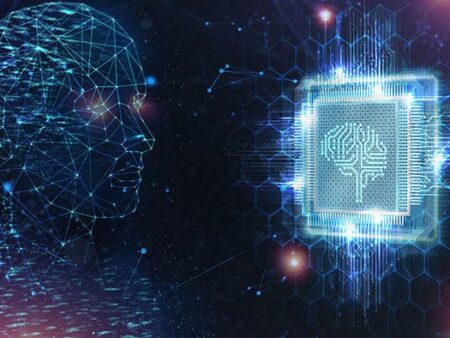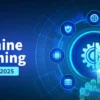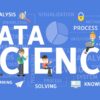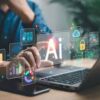In 2025, AI is driving major transformation across healthcare, transportation, education, cybersecurity, and sustainability. From smarter conversations and autonomous systems to ethical governance and creative collaboration, AI is reshaping how we live and work—while raising the need for responsible, transparent use.
AI in 2025: Key Trends Shaping the Future of Innovation, Work, and Society
As artificial intelligence (AI) advances rapidly in 2025, it is reshaping industries, improving daily life, and driving new waves of innovation. Building on progress from previous years, AI is now deeply integrated into sectors such as healthcare, transportation, education, cybersecurity, and environmental sustainability. Alongside these developments, growing attention is being paid to ethical use and regulatory oversight.
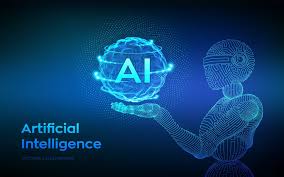
- Natural Language and Conversational AI
AI-powered conversational agents have become more context-aware, emotionally intelligent, and multilingual. These advancements are transforming customer support, digital learning, and user engagement, with systems now capable of maintaining extended, nuanced interactions. - AI in Healthcare
AI is enabling personalized treatment plans through genomic analysis and predictive modeling. Wearable devices offer real-time remote monitoring, while machine learning is accelerating drug discovery. These innovations are improving outcomes and expanding access to preventive care. - Smart Transportation and Autonomous Systems
Autonomous vehicles are more reliable, with AI-driven V2X communication and predictive maintenance systems reducing errors and optimizing traffic flow. Ride-sharing services benefit from AI route optimization, improving user experience and reducing emissions. - Cybersecurity and AI Defense Mechanisms
AI enhances cybersecurity with real-time threat detection, behavioral analytics, and automated response systems. As cyber threats become more complex, AI offers adaptive, proactive defense capabilities critical to digital infrastructure. - Ethical AI and Governance
The widespread use of AI has led to increased focus on transparency, fairness, and regulatory compliance. Techniques such as explainable AI, bias mitigation, and privacy-first design are becoming standard across industries as organizations strive to meet ethical and legal expectations. - Agentic AI and Automation
Agentic AI systems—capable of making autonomous decisions—are now operational in areas ranging from manufacturing to finance. These agents improve efficiency by learning from their environments and operating independently with minimal human intervention. - Education and Adaptive Learning
AI-driven educational tools offer tailored learning paths, real-time feedback, and early detection of learning challenges. Intelligent tutoring systems and personalized curriculums are enhancing engagement and outcomes across student populations. - Creativity and AI Collaboration
AI is playing an active role in creative industries through tools that generate visuals, compose music, and co-write content. Text-to-image and video models, along with voice and audio synthesis, are enabling new forms of artistic expression and content generation. - AI for Environmental Sustainability
From precision agriculture and climate modeling to smart energy grids and carbon tracking, AI is being deployed to combat climate change and support sustainable practices. These solutions are critical to achieving global environmental goals. - Multimodal AI
AI systems that process text, visuals, sound, and motion simultaneously are enhancing robotics, human-computer interaction, and search functionality. These models offer a more holistic understanding of real-world environments and user intent.
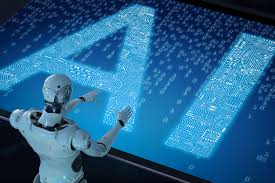
Conclusion
In 2025, AI is no longer a futuristic concept—it is a foundational part of modern society. Its evolution brings immense opportunity, but also responsibility. As AI becomes smarter and more autonomous, the focus must shift toward ethical deployment, inclusive access, and collaborative governance. The future will belong to those who can harness AI not only for efficiency, but for meaningful, sustainable progress.
